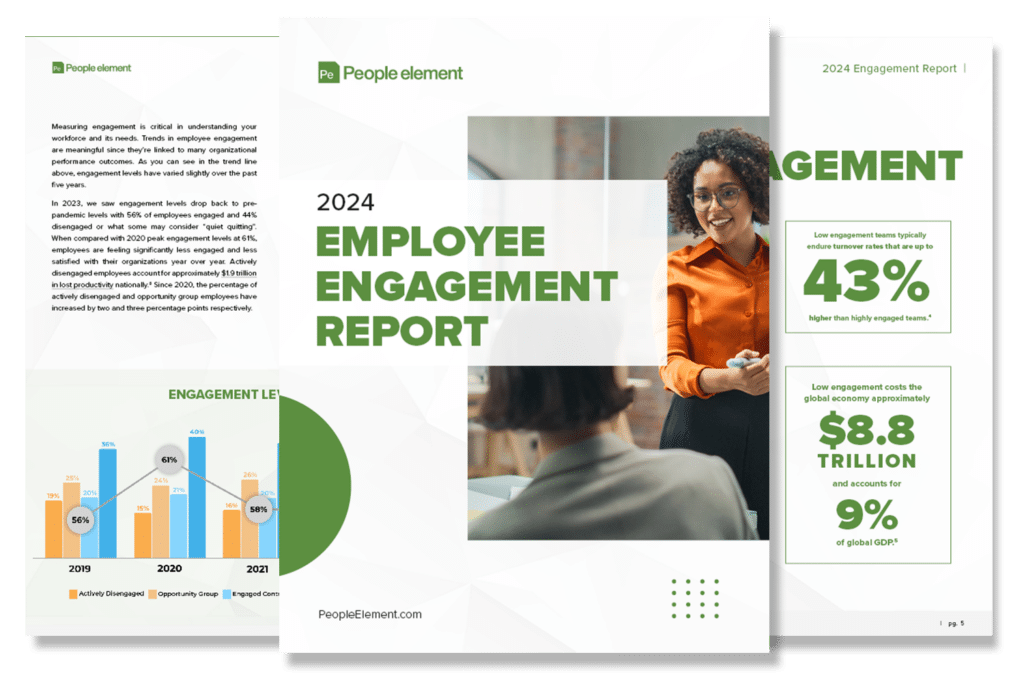Generally speaking, over the past century, organizations across the globe have focused their energy on what you would expect: hiring and training staff, setting strategic goals and growing their bottom line. The topic of employee stress, health and happiness is not something that has been historically prioritized. However, in today’s post-COVID world, employee wellness surveys are taking center stage, helping to reduce stress, boost happiness and increase retention.
Since March of 2020, workers have experienced enhanced stress levels as they navigated the pandemic environment, making concessions both in their personal lives and in the workplace. It’s no surprise that this led to high levels of burnout. According to Denver-based Dr. Sally Spencer-Thomas,
“Burnout stems not only from an overload of responsibilities but from risk factors such as effort-reward imbalance, lack of autonomy, incongruent values between an individual and their workplace, inequitable treatment, and poor colleague-superior relationships.”
A shift was due, and individuals from across industries have reacted by re-prioritizing their health and well-being. In search of reduced stress and anxiety, many have pursued a new working environment, leading all levels of the workforce to take part in The Great Resignation.
To maintain the health of an organization in this competitive environment and beyond, HR departments must re-focus on employee wellness. By taking the time to check in on the well-being of your employees on a regular basis, you can attract and retain top talent, building an organization that is willing to ask, listen and act in the best interest of its employees. Here are four reasons you should start implementing employee wellness surveys:
1) A hybrid workplace has changed the playing field.
While working from home one or more days a week may boost culture and support the ever-important work-life balance in the fallout from the pandemic, it also makes it harder for employers to gauge the well-being and overall engagement of their employees. One of the tips to managing a hybrid workforce includes checking in with regular employee wellness surveys to truly benchmark how employees are feeling both about the organization and their role within it. With fresh data and feedback at their fingertips, leaders can respond quickly to employee needs and implement resources to assist them.
2) The younger generations have different needs.
Millennials, those characterized as born between 1981 and 1996, value purpose and teamwork. In addition to seeking constructive criticism and mentorship, this generation also appreciates positive feedback and recognition for a job well-done. For Gen Z, the youngest employees in today’s workplace, they are also making their mark with different perspectives and priorities, including desired stability and a healthy work-life balance as well as a willingness to discuss mental health. HR teams continue to focus on managing generational differences in the workforce. Employee wellness surveys are an easy way to seek feedback and spark important conversations with both of these generations while supporting the well-being they so highly seek.
3) Employee happiness drives retention.
The Great Resignation means companies are hit harder by turnover and it takes them longer to fill positions. By focusing on employee wellness, you can identify and address areas of frustration or dissatisfaction before an employee chooses to leave. Alternatively, it’s estimated to cost two-to-three times a salary to replace an emerging leader, taking away both time and momentum from the organization. Surveys show employees that the organization cares and is willing to listen, which provides them with a safe environment to share their feedback. This alone has been shown to increase employee happiness. Sometimes, we all just want to be heard.
4) Making mental health a priority mitigates burnout.
Employee burnout has always existed, but the added stress of living and working through a pandemic has taken a toll on mental health and elevated burnout across the board. Burnout is more than feeling tired or needing a vacation from work. It is a cycle made up of workplace factors like poor culture, lack of recognition and support, and increased production pressures to name a few. Checking in with your people on how they’re feeling about some of these factors can be an opportunity to stop the burnout cycle in its tracks. Further, consider adding mental health-specific questions to your wellness surveys. Your employees may need some additional resources to manage their stress and you have the opportunity to provide them with the support they need. This may seem like a small gesture but just being there to listen can build trust with your people and improve their professional and personal lives.
Final Thoughts on Employee Wellness Surveys
Employee wellness surveys provide more than an opportunity to ask important questions that drive honest feedback. They allow employers to be proactive, sparking transparent conversations that truly resonate with their most important asset, their employees. As part of a holistic approach to talent management, employee wellness surveys help you tune into your people and identify meaningful action.
The result is a richer culture, where employees feel safe, supported and free to express their opinions. In turn, employers gain the feedback they need to respond quickly, provide additional resources and acknowledge the whole-life experience of their people. This not only boosts culture and retention, but ultimately, the organization’s bottom line.
At People Element, we provide employee well-being surveys and pro tips from our Employee Experience experts, so if you are ready to listen to your people, let’s talk.





